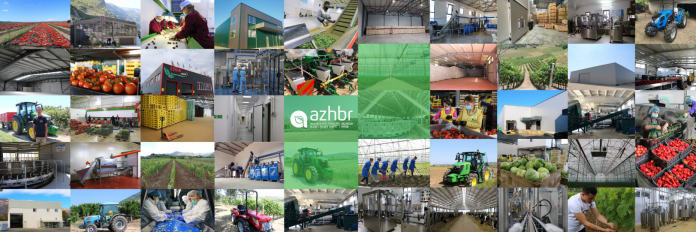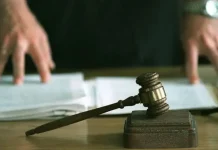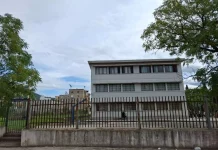On July 14, the European Commission informed the Albanian government that it had suspended grants for agriculture from the IPARD program, due to suspicions of corruption. The extreme decision of Brussels was commented as a normal administrative procedure by the Minister of Agriculture Frida Krifca. Besides, according to her, irregularities or misuses like IPARD funds have also been found in countries such as Germany, France or the Netherlands. Krifca’s statement turns out to be untrue, as the European Commission itself confirms to Faktoje that it has not taken any similar measures with other countries, except Albania.
Esmeralda Topi
In July of this year, while Albania was waiting to start the IPARD III agricultural support program with 146 million euros in grants, the European Commission temporarily suspended the funds, based on suspicions that there was corruption in their distribution.
In a letter addressed to the Albanian government, the General Directorate for Agriculture and Rural Development informed about serious deficiencies in the operation of the internal control system for the implementation and control of IPARD II funds in Albania.
However, the Minister of Agriculture Frida Krifca’s comment on this extreme measure towards Albania was that this was just a regular administrative procedure.
“This is a completely administrative process that allows the re-verification of the control systems by the accredited structures which will take the necessary measures in order to continue the normal reimbursement from the EU”, notes the announcement of the Ministry of Agriculture and Rural Development.
In fact, during the closing session of the parliament, Krifca added that similar irregularities or misuse of IPARD funds have also been found in countries such as Germany, France or the Netherlands.
“Out of the 27 countries of the European Union, only two of them have had no irregularities or waste of funds. Germany, France, Italy, Spain, the Netherlands, Belgium, and I am only referring to developed countries, these are just some of the countries where various problems have been found and each of these countries has been forced to refund the funds to the Commission.”, said the minister from the floor of the Assembly.
But in a special reaction to Faktoje, the European Commission, through a spokesperson, confirms that the decision for Albania is unprecedented.
“There have been no similar cases.”, their response says, stressing that the suspension is a precautionary measure to protect the EU’s financial interest, while the OLAF investigation continues.
“Albanian authorities have been requested to respond to the letter and propose corrective measures, as necessary, based on the preliminary information received by OLAF and as communicated to them by DG AGRI. However, a more detailed exchange will take place at a later stage, once OLAF Final Report is available. As a precautionary measure, the Commission has temporarily suspended the payment of the first quarter of 2023 (457,239 euros),” says the EC spokesperson, while adding that the European Commission will inform the Albanian authorities accordingly, when OLAF submits Final Report.
“If the initial indications of problems are not confirmed, the preventive measures are simply removed and the suspended payments resume execution. Otherwise, if these issues are confirmed, the recovery of funds will be done in accordance with the rules and procedures of the Framework Agreement and the Sectoral Agreement concluded by the European Commission and the Government of Albania for the IPARD II program.”, notes their the answer to Faktoje, while emphasizing the key role of the Albanian authorities in the implementation of the program.
“The IPARD program is implemented under the so-called “indirect management”. This means that the Albanian authorities have a key role to play in ensuring that the IPARD program is implemented in accordance with EU rules in force and that the spending of the EU money under this program is effectively controlled. There is no doubt that the European Union is ready to continue supporting Albanian farmers, the agri-food sector and rural areas in the future, provided that the necessary corrective measures are taken by the Albanian authorities to ensure that the financial interests of the European Union are properly protected,” states the European Commission through the spokesperson.
Ilir Pilku, one of the three experts certified by the EU in Albania, for “Common European Policies” says that upon finalization of the OLAF report, the following solutions await Albania:
“There are only two kinds of findings that OLAF officials can come up with in the final report: It is either administrative, disciplinary violations, etc. for which recommendations and deadlines are given to fix them. Misuse of money/corrupttion, for which there is only one action: Restitution of the agreed value and penalization of the perpetrators by the legal bodies.”
In all cases, according to him, the AZHBR (Agency for Rural Development and Agriculture) is given the right to defend and argue against the claims of the OLAF office, as well as to negotiate the reduction of the value of the economic damage.
ARDA and the Ministry of Agriculture do not ‘respond’
The two Albanian authorities directly involved in this delicate matter, the Agency for Agricultural and Rural Development and the Ministry of Agriculture, have not responded to our request for information.
Instead of the information requested by Faktoje, the Agency for Agricultural and Rural Development provided us with the link to the press release that was distributed by the Ministry of Agriculture in response to the suspension of funds.
Even the process of complaining about the failure to obtain the information we requested to the Commissioner for the Right to Information failed. The institution that should mediate this right, legitimized the ‘silence’ of the AZHBR.
“… Your complaint is outside the scope of the law on the right to information and as such cannot be examined further,” says, among others, the letter from the Commissioner for the Right to Information.
The investigation in Albania at a snail’s pace
Three years ago, OLAF also engaged the Albanian prosecutor’s office to investigate the funds of AZHBR, but there is still no result.
The data provided by Faktoje through a right to information request show that the case for the IPARD II program was initially registered with SPAK, but two years later the Special Prosecutor’s Office against Corruption and Organized Crime declared that the case did not fall under its jurisdiction. The case file was forwarded to the Prosecutor’s Office of Tirana.
Tirana Prosecutor’s Office says that “SPAK did not find the case to fall under its jurisdiction, as it lacks elements of passive corruption, a criminal offence provided for by Article 259 of the Criminal Code”.
The Prosecutor’s Office of Tirana registered the proceedings for the charges of falsification of documents and abuse of office, provided by articles 186 and 248 of the Criminal Code on November 17, 2022. But as of now, there are still no persons under investigation.
“Until this stage of the investigation, no names are registered in our criminal offense notification register. The case is still under investigation and at this stage, and no more detailed information can be disclosed,” Tirana Prosecutor’s Office says to Faktoje.
We also addressed a request for information to the Special Prosecutor’s Office against Corruption and Organized Crime, but until the moment of publication of this article we have not received a response.
OLAF, on the other hand, after a request for information, clarified to Faktoje that it usually does not give comments on the cases it can handle.
“This is to protect the confidentiality of any possible investigation and possible legal proceedings that follow, as well as to guarantee respect for personal data and procedural rights,” says the official response of the European Anti-Fraud Office (OLAF).










